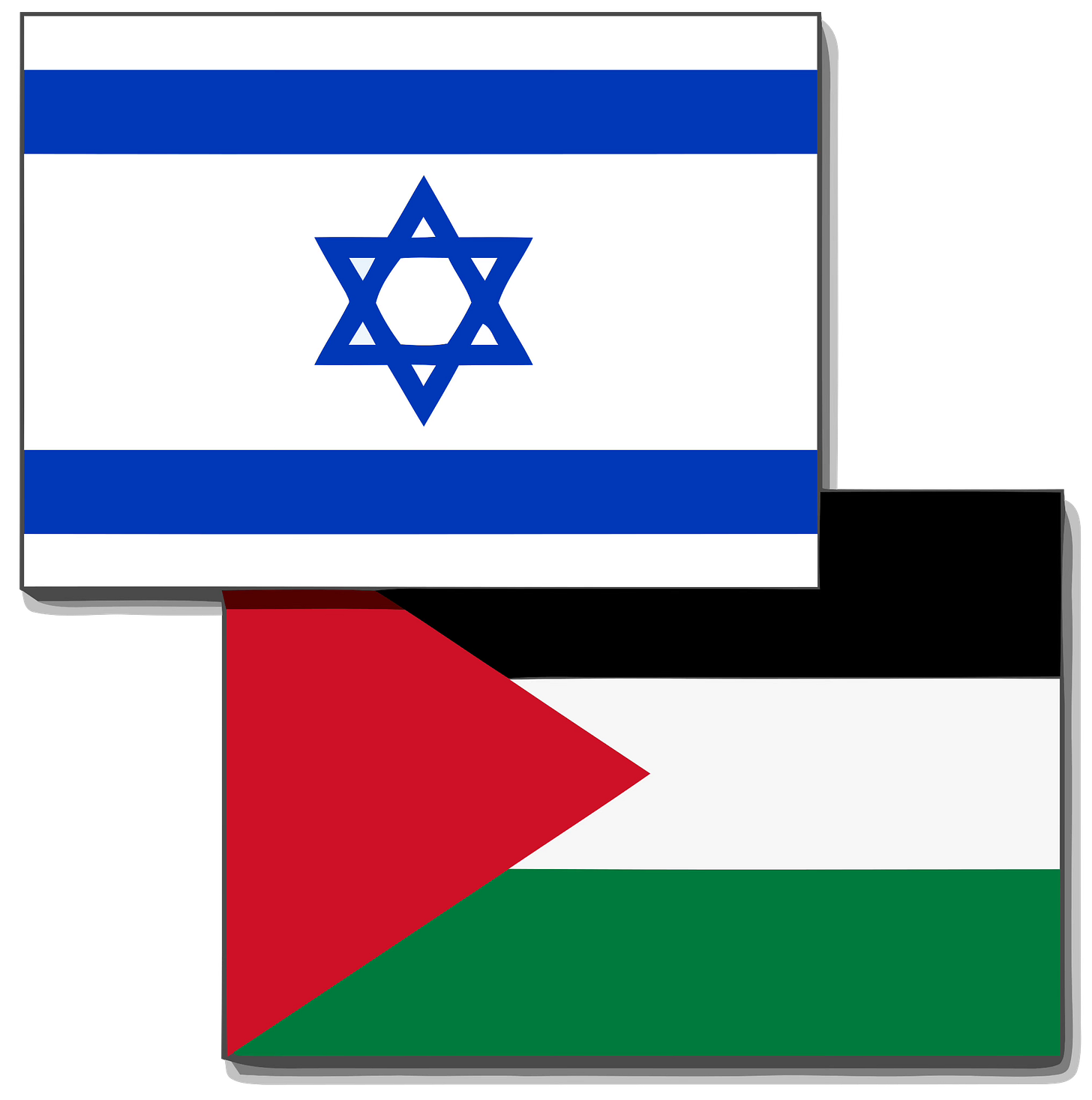The problem with taking sides
#14
Hello, Friends of Democracy,
Can the conflict between Israel and the Palestinians ever be resolved? Of course! Most people want to live in peace, prosperity and freedom. Though, what doesn't help much is black-and-white thinking.
What do I mean by that?
A few personal comments.
People tend to be quick to judge. To think in black and white. With the Corona measures, gendering, migration. A definite attitude is often expected. And it helps you. Fast orientation and determination enable a self-confident walk through the world.
The rapid formation of opinions is helpful – and at the same time, there is a danger in it. The danger is that we are wrong. That we make bad judgements. That we form groups of like-minded people who, in turn, are contrary to the opinions of other groups and that new conflicts arise from this.
The desire to find orientation in the world, the wish for meaning and peace, can lead to the opposite, to strife and mischief.
The Israel-Palestine conflict has accompanied me from afar since I started watching the news.
When I think of the television news of my childhood and youth in West Germany back in the 19080s, the first two things that come to mind are the pronunciation of the word "Bonn" (because that was the capital back then and at that time, newsreaders put the location of the event at the beginning of every news; in written news, this is still common today), and the map of Israel and the Palestinian territories.
The map in yellow on blue in the daily main news broadcast; the outlines of the country highly simplified to be able to understand the essential information quickly; the borders drawn in a few straight lines; sometimes also headshot images, for example, from Yasser Arafat, which was usually a good sign because then the news was about talks between the parties to the conflict.
I probably have the memory because the Israeli-Palestinian conflict was so often in the news.
Why am I telling you this? Because this reporting taught me something at an early age.
Depending on the current news situation back then, I sometimes sympathised more with one side or the other. If a suicide bomber blew himself up in Tel Aviv, I showed solidarity with Israel. When Israeli soldiers shot Palestinians, I supported their struggle for freedom. I was less and less able to cope with that. Whose side was I actually on?
I began to read up on the subject, only to quickly realise that the matter was highly complicated and that the closer I looked into the conflict, the less possible it was to attribute blame for the messy situation to one side.
Since this early experience, I have been reluctant to express an opinion on the Israel-Palestine conflict (I am less successful on other issues). This indecisiveness certainly does not apply to inconceivably horrific acts such as the deliberate killing of defenceless people. Still, it does apply to blanket attributions of who bears the primary responsibility for the current situation.
And I am convinced that an attitude like that offers the chance to improve the situation. As difficult as it is, a sober view of the causes of this situation is needed. This sobriety cannot be demanded from those directly involved. Such an expectation is inhumane after what the people have all suffered from.
That is why support is needed from outside. Not from those forces who are mainly doing their own thing. Who believe they can profit if the conflict intensifies but from those who long for peace to come and who have not given up that hope. Europe is challenged here.
I also believe that peace is possible. Because the people there want it. No one likes to live in misery. Everyone wants a good and self-determined life. But we will not help the people of Israel and the Palestine territories to live in peace through inaccurate simplifications. The path to a good life is incredibly complicated. We should contribute so that this path can be taken—a path towards peace, freedom and prosperity.
See you,
Johannes Eber


